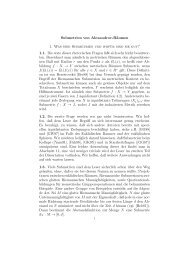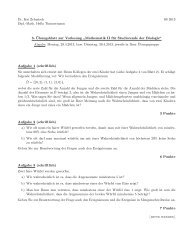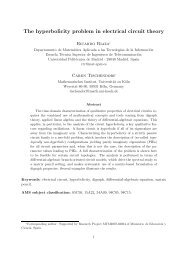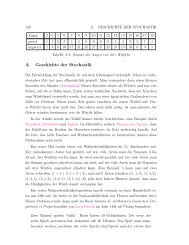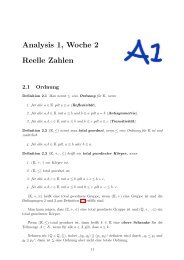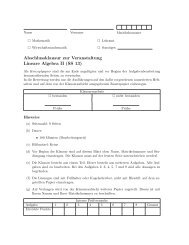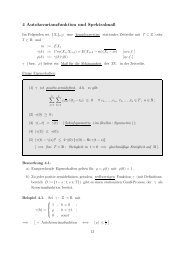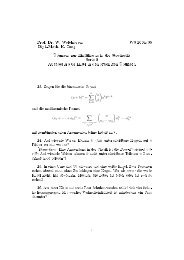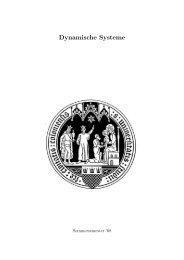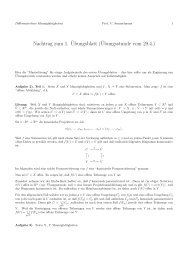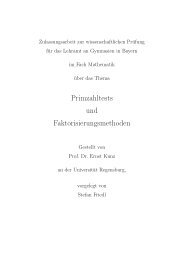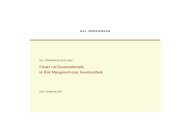Inhaltsverzeichnis - Mathematisches Institut der Universität zu Köln
Inhaltsverzeichnis - Mathematisches Institut der Universität zu Köln
Inhaltsverzeichnis - Mathematisches Institut der Universität zu Köln
Create successful ePaper yourself
Turn your PDF publications into a flip-book with our unique Google optimized e-Paper software.
DMV Tagung 2011 - <strong>Köln</strong>, 19. - 22. September<br />
Christian Gieger<br />
<strong>Institut</strong>e of Genetic Epidemiology, Helmholtz Zentrum München, Neuherberg, Germany<br />
The role of genetically determined metabotypes in the genetics of complex traits and<br />
polygenic disor<strong>der</strong>s<br />
Metabolite concentrations provide a direct readout of biological processes in the human body, and are<br />
associated with disor<strong>der</strong>s such as cardiovascular and metabolic diseases. We have identified common<br />
genetic polymorphisms that alter an individual’s metabolic capacities. Knowledge of these genetically determined<br />
metabotypes in the human population is key to identify the contributions and interactions of<br />
genetic and environmental factors in the etiology of complex diseases. I will present a genome-wide association<br />
study with 163 metabolic traits, covering a biologically relevant panel of amino acids, sugars,<br />
acylcarnitines, and phospholipids, using 1809 participants from the KORA population. Most often, the genetic<br />
variant is located in or near enzyme or solute carrier coding genes, where the associating metabolic<br />
traits match the proteins’ function. The analysis of such a dataset is a major computational effort. We<br />
calculated more than 26,000 separate genome-wide association studies, in which we associated 500,000<br />
single nucleotide polymorphisms with 163 metabolite concentrations as well as all possible 26,406 metabolite<br />
concentration ratios. Statistical modelling is not trivial as metabolite concentrations are highly<br />
correlated due to common and connected metabolic pathways. In summary, this study allowed us to draw<br />
a systemic perspective of the genetic variation that is found in metabolism.<br />
Literatur<br />
Gieger C, Geistlinger L, Altmaier E, Hrabe de Angelis M, Kronenberg F, Meitinger T, Mewes HW, Wichmann<br />
HE, Weinberger KM, Adamski J, Illig T, Suhre K (2008). Genetics meets metabolomics: a genomewide<br />
association study of metabolite profiles in human serum. PLoS Genetics 4(11):e1000282<br />
Illig T, Gieger C, Zhai G, Römisch-Margl W, Wang-Sattler R, Prehn C, Altmaier E, Kastenmüller G, Kato<br />
BS, Mewes HW, Meitinger T, Hrabe de Angelis M, Kronenberg F, Soranzo N, Wichmann HE, Spector TD,<br />
Adamski J, Suhre K (2010). A genome-wide perspective of genetic variation in human metabolism. Nature<br />
Genetics 42(2), 137-41.<br />
126




